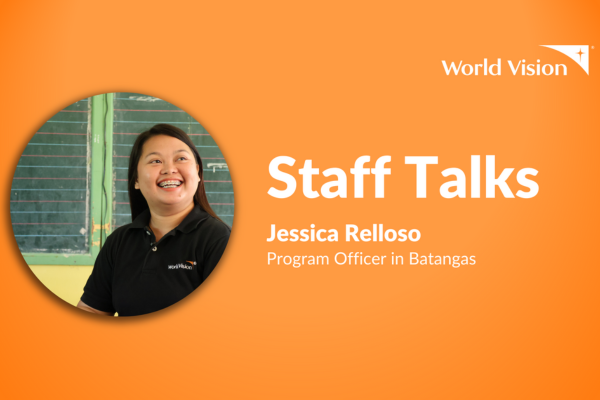Livelihood Opportunities Needed to Ensure Nutrition of Marawi IDPs

When Noraiza, 44, has returned home in Marawi City last November, her main concern was how is she going to provide for her family after the crisis.
“We were unsure how to start again when we returned to our village,” said Noraiza.
The crisis that ended last October has displaced 77,000 families in Marawi City. Her family is one of the 27,000 families from 42 barangays who have returned to Marawi City according to the data from the government as of June 2018.
Marawi evacuees are mostly poor artisans, household helpers, construction workers, and laborers working with Muslim employers whose main livelihood is also gone. Nutrition and food security remain a challenge for the families who have returned because of the lack of livelihood opportunities in the city.
“We really need to earn money to buy food but the problem is where are we going to work,” said Noraiza.
Malnutrition
The risk of malnutrition among children have increased since the Marawi Crisis.
According to a report from UNICEF last May 2018, there are 60,000 chronically malnourished children aged 0-5, including an estimated 2,000 severely malnourished, in Lanao de Sur.
The report highlighted that the widespread loss of incomes has led families to reduce the frequency of feeding and quality of food for their young children with implications for their nutritional status.
Malnutrition doesn’t just affect the young. According to the Humanitarian Country Team Report last March 2018, 136 out of the 4,557 women screened in Marawi City were identified with acute malnutrition.
The World Food Programme’s Emergency Food Security Assessment in February 2018 revealed that 39 percent of the assessed population in Lanao del Norte and Lanao del Sur including Marawi City is moderate to severely food insecure.
Cash-for-Work

World Vision through its Cash-for-Work program supports the rehabilitation of war-torn communities in Marawi City. It aimed to help provide food and capital for families’ livelihood.
Activities like community clean-up, road clearing, and community gardening were conducted in the assisted areas, in consultation with the community people and in partnership with the local government and local partners.
The ten-day program encouraged the people from five barangays to come up with projects that will help their communities. In return, they received P2,500 each.
Among the beneficiaries who received the cash assistance was Noraiza. She used the money from the program to open a hamburger store. She was already running a sari-sari store before the conflict-hit their city.
“I realized that I need to invest the money in re-opening my business to support my family,” shared Noraiza.
Now, she is earning P800 each day from the business. She uses the money to support the daily food needs of her family and to send her four children to school.
Community Garden

As part of the cash-for-work group output, community members of Basak Malutlut started a community garden initiative called BahayPag-asa. They planted vegetables that are easy to grow for beginner gardeners since most of them are traders and not used to farming.
The community garden has cultivated the camaraderie or Bayanihan among the community members. The villagers contributed by providing garden tools, expertise, and even time to start the community garden.
The garden has also helped resume the community’s livelihood and addressed their immediate food needs.
“We now have a source of food and everyone is benefitting from this,” said Saad.
In the first six months of the garden, they’ve already harvested carrot, eggplants, okra, tomatoes, and radish. The produce from the community garden has helped them prevent hunger and malnutrition. The members of the community either sell the vegetables or cook it for their families.
Long-Term Recovery
While more than 20,000 families have returned to Marawi, continued assistance to address the humanitarian needs of over 49,000 families who remain displaced is crucial.
Noraiza hopes that continuous assistance will be given for the returning residents and to those who are still in the evacuation centers and home-based communities.
World Vision is a global Christian relief, development and advocacy organisation dedicated to working with children, families and communities to overcome poverty and injustice. World Vision serves all people, regardless of religion, race, ethnicity, or gender.
Stay up to date with World Vision Philippines! Follow us on Facebook, Twitter and Instagram.








